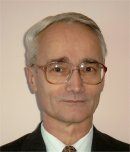|
Plenary
Lecture
An Overview of How to Make Properly Harmonics
Distortions Measurements in Medium
Voltage Distribution System

Professor Liviu E. Petrean
Co-Authors: Mircea Horgos, Attila Buchmann, Liviu
Petrean
Electrical Engineering Department
North University of Baia Mare
62/A, Dr. Victor Babes str.
430083 Baia Mare
ROMANIA
E-mail:
petreanliviu@yahoo.com
Abstract:
In this paper we present an overview on how to
conduct properly measurements and analysis to obtain
accurate results in harmonic distortions propagation.
Distortion of sinusoidal voltage and current waveforms
caused by harmonics is one of the major power quality
concerns in electric power system. With the widespread
proliferation of power electronics loads significant
amounts of harmonic distortion currents are being
injected into power system. The distribution system
impedance, the presence of a power factor improvement
capacitor bank and the amount of resistive loads in the
system are three primary variables affecting the system
response characteristic. Current amplifications occur at
frequencies different of the resonant frequencies; three
maximum values corresponding to three oscillatory
frequencies were found. In order to differentiate
harmonic currents due to nonsinusoidal loads from
harmonic currents due to resonance involving capacitor
bank a frequency-domain analysis has been performed. It
presents useful recommendations on how, where and under
what conditions to make measurements of harmonic
distortions.
Brief Biography of the Speaker:
Liviu Emil PETREAN was born in Romania on 15 September
1946. He received the B.Sc. "Diploma of Merit" in Power
Engineering in 1969 and the Ph. D. degree in
Electromagnetic Fields in 1983 from the "Politehnica"
University of Timisoara. He worked first 6 years in
power engineering area. Liviu Emil Petrean is currently
Professor in Electrotechnics, Protective Relaying and
Power Quality in the Faculty of Engineering, North
University of Baia Mare and is director of Electrical
Engineering Department. His main research interests
concern finite elements method in Electromagnetic
Fields, Electromagnetic separation of minerals, Energy
Efficiency and Power Quality. In these fields, he
authored over 80 scientific papers published or
presented at international or national conferences. He
has extensive experience in experimental research work
certified by over 30 scientific research projects, from
which he coordinated 11. He is IEEE affiliate member and
technical reviewer for the PIERS Progress in
Electromagnetics Research Symposium.
|
